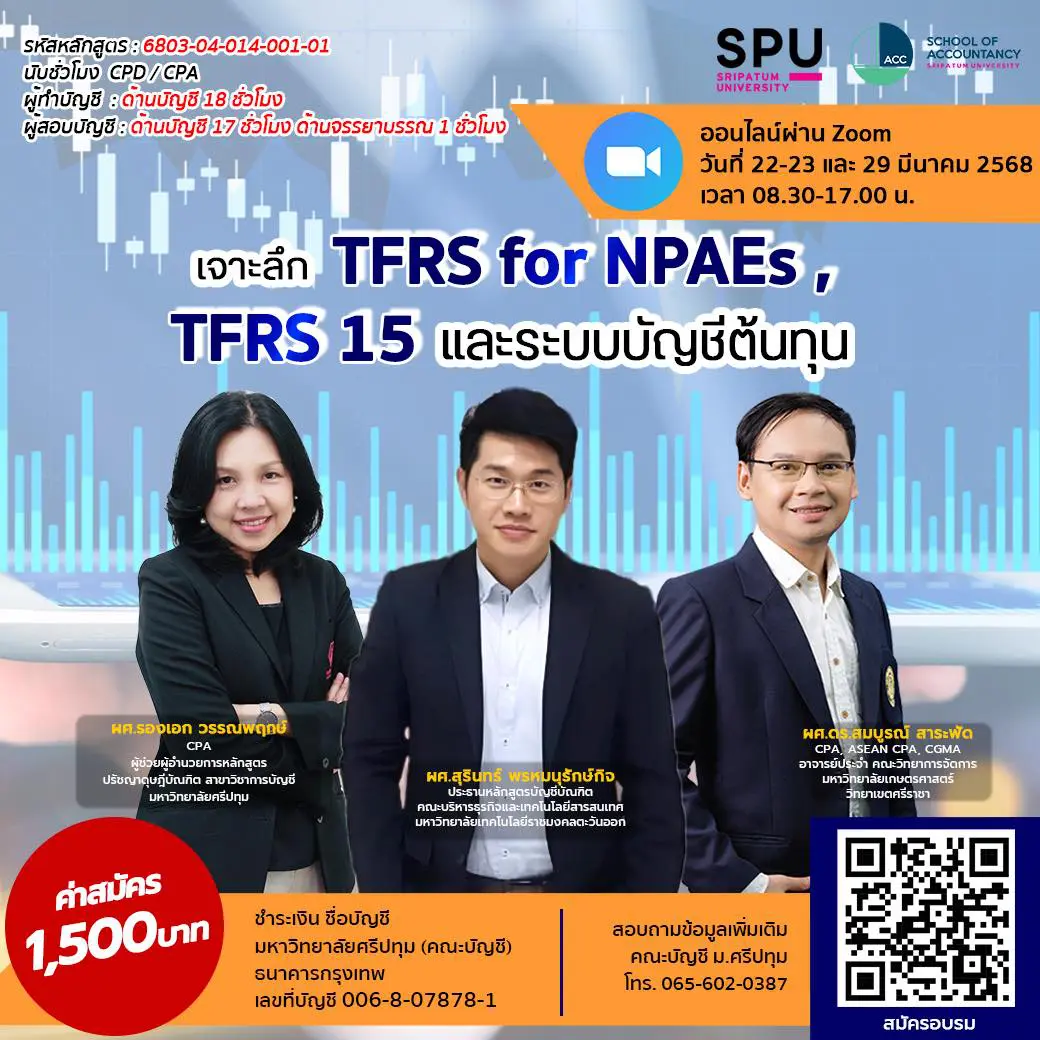Hello, “Phi Muean Fun” Ratchanee Laorotchanathaworn, an alumnus of the Faculty of Accountancy, Class 61. Currently, I work as an Assistant Manager, Customer Investment Asset Service Department, Finansia Syrus Securities Public Company Limited. I work as a Wealth Advisor or in some places, it may be called Investment Advisor or Investment Planner, which means an investment planner/advisor.
What does a Wealth Advisor do?
Wealth Advisor is an intermediary between Research and Relationship Manager (RM). Its main duty is to provide investment information consultation and plan investment strategies together with RM to present investment plans to clients. Its duties range from Consulting / Planning / Monitoring and Port Management, which requires monitoring and analyzing data and various factors, including following financial reports that may affect investment assets from reliable domestic and international news sources.
Benefits of Being a Wealth Advisor @ Securities Company
It is independence and neutrality in selecting the right products for customers, especially “mutual funds” because securities companies are representatives selling investment units of asset management companies. In Thailand, there are more than 10 asset management companies. In addition, there are other products such as private funds / private equity and bonds, which give us a wider knowledge and understanding of finance and investment, which will also increase the experience gained.
Challenges?
What is unavoidable is the volatility of the financial market and the global economy, “Uncontrollable”, which affects the investment portfolio and the emotions of the clients. Therefore, Wealth Advisors & RMs must give importance to managing the emotions and expectations of the clients. In addition, the “limitations” of each client may cause the investment to not go as planned or the method that we propose.
Wealth Advisors with “Exponential” Growth Opportunities
For those who are interested, I recommend that you start preparing for the IC License exam in years 3-4 to complete all 3 subjects: IC Plain + IC Complex2 + IC Complex3 to register as IC Complex1 after you receive your certificate to be your first step in your career.
During your studies in years 1-4, I recommend that you start by studying what investment assets there are, what kind of returns they give, and how you should start investing. Study gradually. After you have gained basic knowledge, practice listening to economic news and investment market overviews on various media, such as The Standard wealth / Finnomena / TMB AM / SCBs / Finansia YouTube and others. If you practice listening continuously, you will start to integrate your investment knowledge automatically.
The important thing is to “Learn by doing” by practicing investing by yourself (you don’t need a lot of money to do it) and develop an investment plan for people close to you to practice your analytical skills, presentation skills, and handling pressure. Or if you have the opportunity to manage a large portfolio, whether in the name of an individual or a juristic person, keep it as a profile for applying for jobs. And don’t forget soft skills and other abilities such as Technical Analysis, which if you can learn as I mentioned above, graduate with a bachelor’s degree, starting salary 25,000 – 30,000, you can do it!!
However, after you have a company, I recommend that you apply for a company scholarship to take the CFP Module 1 and CFP Module 2 exams to register as an IP License or continue to take the CFP exam to complete all 6 Modules to register as a Financial Planner “CFP” after that.
Experience + License + Connection will make you earn “Exponential” in the future.
“It may be tiring at first, but trust me, it’s worth the effort.”
Ms. Ratchanee Laorotchanathaworn
Assistant Manager, Client Investment Asset Services Department
Finansia Syrus Securities Public Company Limited
Alumni of the Bachelor of Accountancy Program
Faculty of Accountancy, Sripathum University














